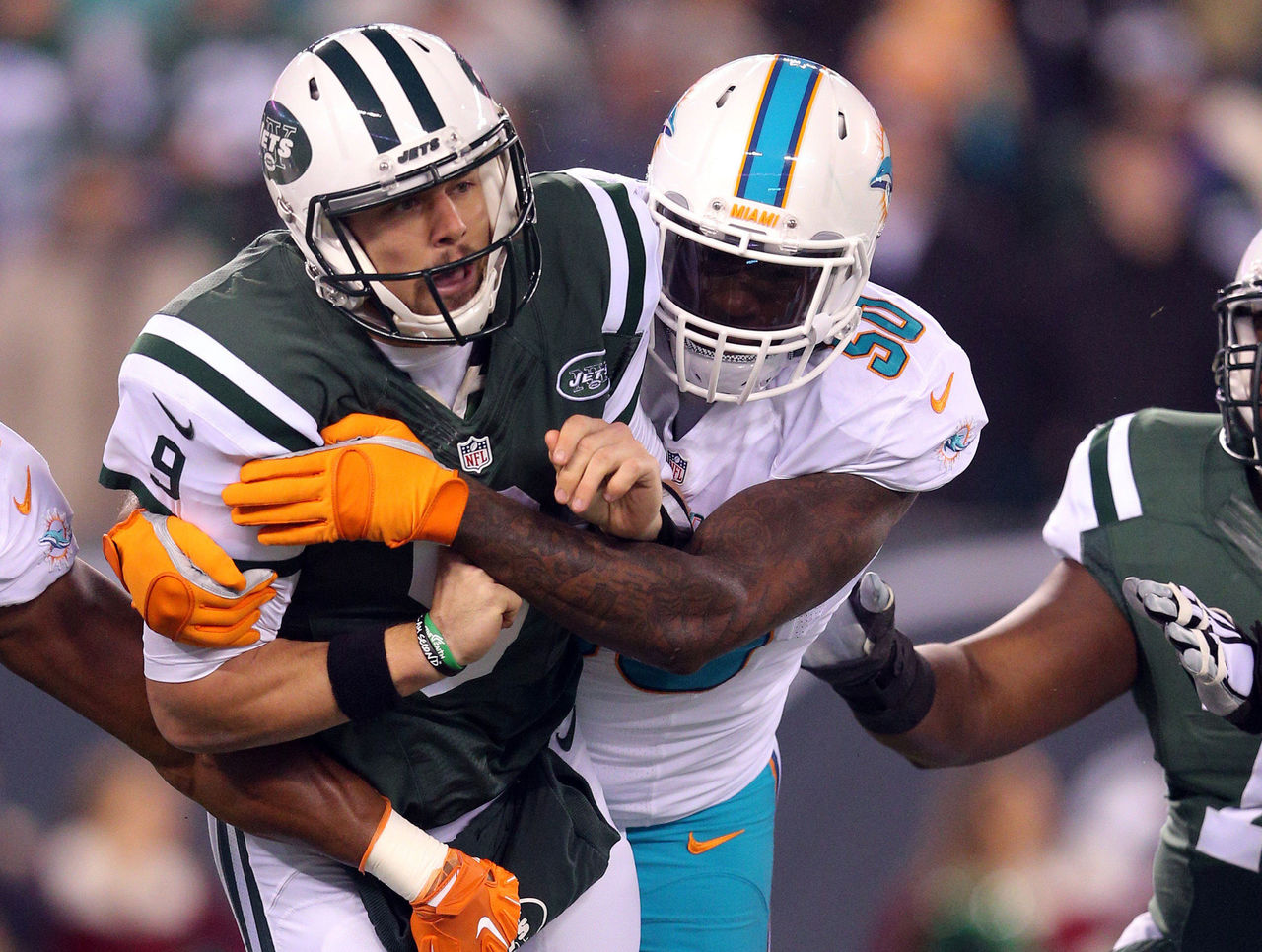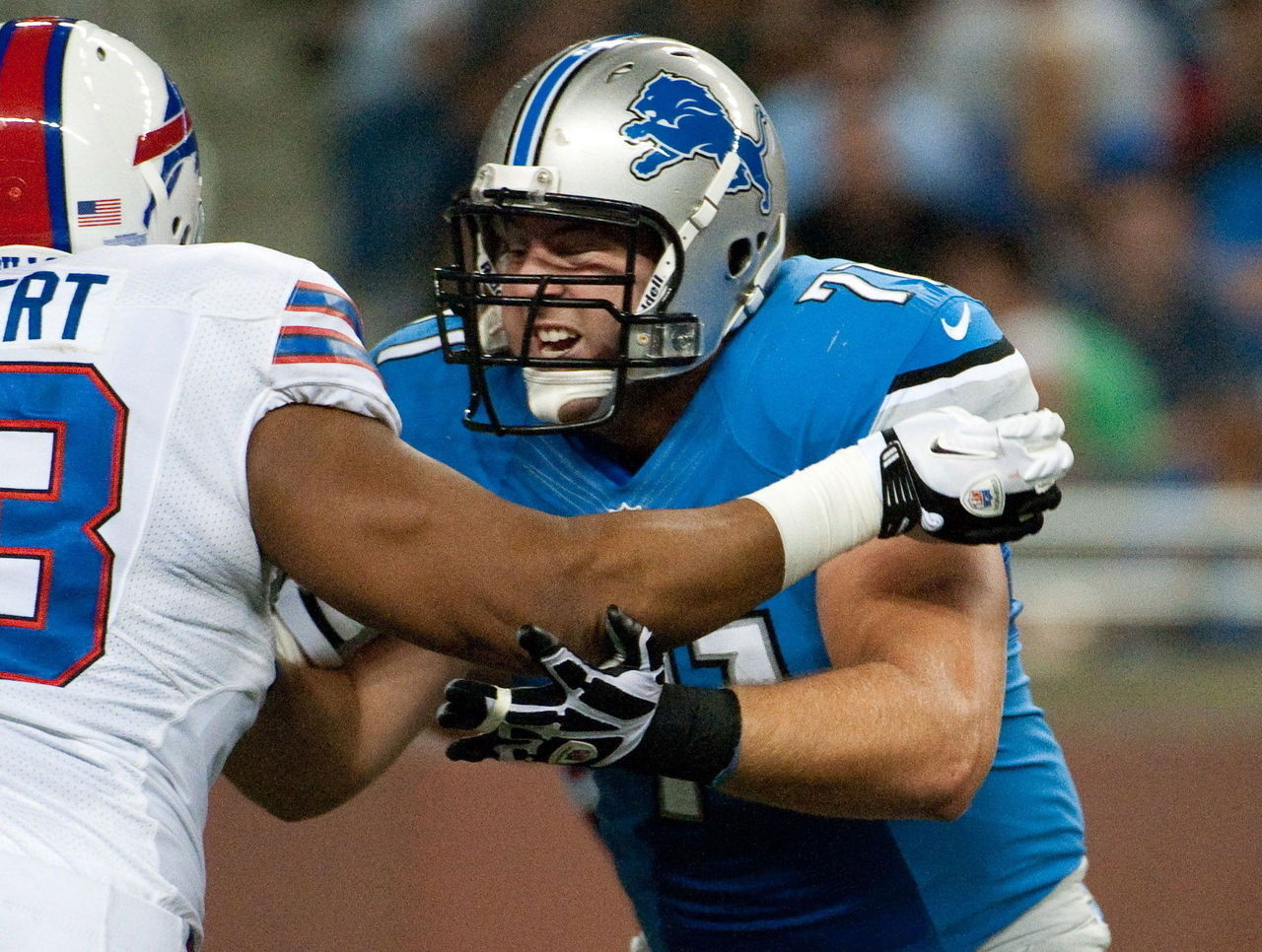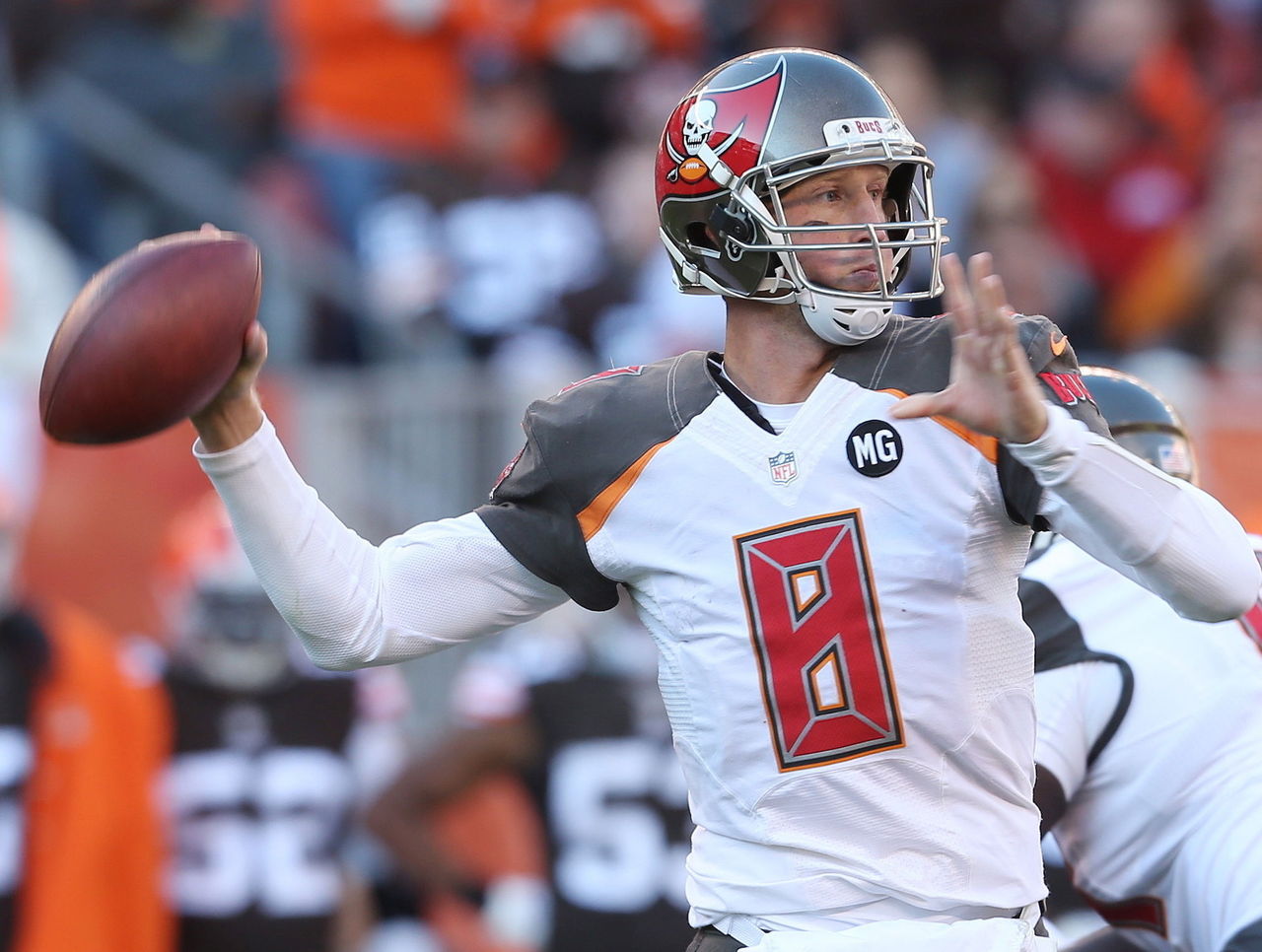3 teams that should've taken a closer look at the draft before spending in FA
The lure of free agency is often too much for some teams.
All that talent just waiting to be scooped up, immediately plugging the glaring holes in a roster and providing fan bases with a shot of adrenaline for the upcoming season.
However, the problem with teams throwing free-agent money at their problems is that not only does it often not solve them, it means they then miss out on more affordable talent in the draft.
Here are three teams who should've done more homework on the draft before opening their wallets in free agency:
Dolphins
The Dolphins have never been shy about spending in free agency, and while most of their cash this offseason went to retaining their own players, they still made several unwise moves.
Chief among them was the extension handed to Andre Branch after the veteran defensive end produced a solid his first season with the Dolphins.
In, 2016, Branch was playing on the type of cheap, one-year deal that is great for teams to pick up in free agency due to their low risk and high reward. It's not so great when that team then turns around and hands that player a contract containing $16.8 million in guarantees, 70 percent of the entire contract.

The Dolphins will likely now view the defensive end position as fixed, along with the trade for William Hayes (a much smarter move). This means they'll pass up what is a very deep edge rusher class, and potentially miss out on their long-term replacement for Olivier Vernon.
Miami will also have a similar issue at inside linebacker. Not only did they overpay Kiko Alonso with a three-year, $29-million extension, they paired him up with a declining veteran free agent in Lawrence Timmons. Instead of looking to get younger at the center of their defense via the draft, the Dolphins got older, less athletic, and worse in run defense.
Alonso could've lived up to his contract if paired with a dynamic prospect who has the coverage skills that modern NFL requires, like Zach Cunningham or Jarrad Davis.
Vikings
In their desperation to fix what was one of the worst offensive lines in the league last season, the Vikings paid big for offensive tackles Mike Remmers and Riley Reiff.
The Vikings made Remmers the 30th highest-paid tackle in the league and Reiff the eighth, both far beyond their skill level. Minnesota will still likely draft some competition, but fixing the offensive line should have been priority No. 1 heading into the draft.
Reiff is, at best, an average left tackle, while Remmers is the definition of a replacement-level player. Also, the former doesn't even fix the Vikings' biggest issue - their 32nd-ranked running game - as he's a much better pass blocker than run blocker.

This year's tackle class isn't that strong, and the Vikings' lack of a first-round pick means the top prospects would be out of reach. However, Day 2 players like Antonio Garcia would have been a smarter long-term investment than paying big for mediocrity in free agency.
The Vikings' philosophy with the offensive line could've made sense if the plan was to use the draft to take a running back who could succeed with just decent blocking and whose cheap contract would balance out the overpay for Remmers and Reiff.
But the addition of Latavius Murray at $5 million a year scuppers that idea, and while the former Oakland Raiders running back is a solid player, he's not the playmaker the Vikings desperately needed to add to their backfield.
To make matters worse, this draft is bursting at the seams with intriguing running back prospects after the first round. Alvin Kamara, Joe Mixon, Kareem Hunt, or Jamaal Williams would've provided the Vikings' offense with the boost it needed - and at a much lower price.
Bears

Mike Glennon's three-year, $45-million contract isn't that necessarily that bad, and there's a decent argument to made that he'll play better in 2017 than any quarterback in the draft will.
But the Bears definitely overpaid for the quarterback, money which could've been best spent on retooling one of the league's worst rosters. While the Bears are unlikely to view Glennon as a long-term option, it should lessen their desire to take a shot at a quarterback high in the draft.
The presence of Glennon should cause the Bears to pass on the top quarterback prospects and instead take a flier on a mid-round guy, a route that has rarely paid off. The Bears should have waited until after the draft to add a veteran, as it's entirely possible a top quarterback prospect falls out of the first round. It would've been a risk, and Glennon likely would have been signed elsewhere, but he's not a good enough player.
And quarterback wasn't the only position the Bears should have waited on. Chicago added Kendall Wright and Markus Wheaton to their receiving corps, two underwhelming players who aren't the type of difference makers the Bears need in order to give Glennon a shot.
This year's receiving class is outstanding, and the Bears could have looked to replace Alshon Jeffery with Day 2 prospects like Chris Godwin, Zay Jones, or Carlos Henderson - instead of hoping replacement-level veterans can fill the void.
(Photos courtesy: Action Images)